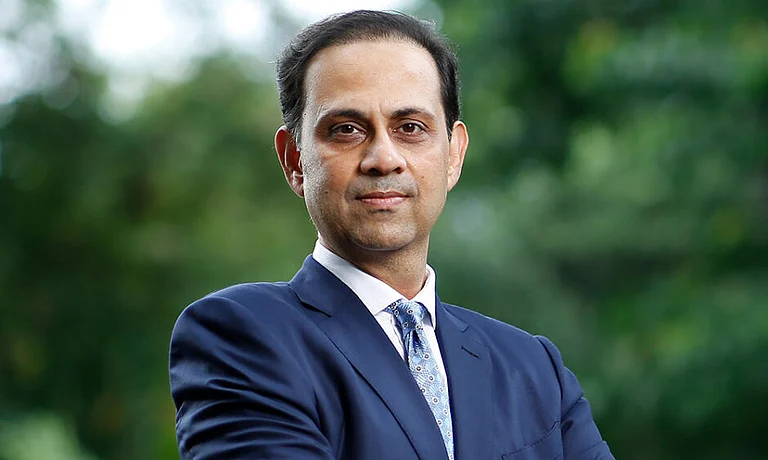According to a KPMG study of 2020, global fintech investment reached 1,221 deals or a total of $26.5 billion in the first half of 2020. Another 2020 report by PwC predicts that up to 28% of banking and payment services are at risk of disruption due to advances in business models brought about by fintech. Fintech services or platforms were already experiencing increasing use and increasing global investment before the coronavirus outbreak. The pandemic has, further, contributed immensely to the acceleration of cloud services and similar solutions for the industry.
The Growth Of Fintech And Trends Influencing Its Future
According to the Business Research Company, the global financial services market is expected to reach $26521.67 Billion by 2022.
The average use of fintech services worldwide is only going to keep rising. Financial technology companies are well aware of these opportunities and hence, working towards finding their niche, developing innovative technological solutions and empowering their business with one or several fintech trends. The focus of advancements is to help the users avoid overspending, navigate risks and better manage their finances.
Along with FinTech, the RegTech industry is also undergoing a fundamental transformation. From open banking to biometric security systems – below are some significant trends that are likely to shape the future of the industry.
RegTech In Financial Services
Regulatory technology is rapidly driving advancements in the regulatory landscape of the financial industry, making it better and more efficient. RegTech basically seeks to abolish compliance as an entry barrier by offering advanced software to companies that automate the process, perfects authentication, reduces risk fraud and ultimately, simplifies the whole process. Further with emerging RegTech solutions, banks can decrease compliance costs by making use of predictive analytics and algorithmic platforms in addition to protecting customers, reducing administrative overhead and ensuring financial stability.
One Platform, Multiple Services
With increasing consumer demand for multiple services across one platform, convenient services and ease of transactions; fintech brands are exploring ways to integrate these services in their platform or app and digitise the consumer demand. Many brands have already rolled out the process and going forward, there will be an increase in offering of robust solutions through powerful API integrations.
Blockchain And Big Data
Blockchain and Big Data continue to lead advancements in various sectors. By leveraging these tech trends, banks can reduce phishing attacks, fraudulent activities and ensure secure payments. Other important tech trends that will disrupt Fintech are Data Analytics, Artificial Intelligence and Machine Learning by addressing key challenges like scrutinising risky transactions and cost reduction.
Optimised Cybersecurity
Cyber-attacks and fraud are serious threats, requiring constant vigilance. Fundamentally, we are more technologically reliant than ever before and our dependency on technology will only increase with time. Personal data is now posted to the public on our social media accounts; sensitive information like debit/credit card information; bank account details are now stored in cloud storage services.
The fact of the matter is that all of us rely on computer systems every day. Combined with cloud services, smartphones, Internet of Things (IoT) and poor cloud service security, we have a myriad of cybersecurity threats that did not exist a few decades ago. Moreover, cybercriminals are changing what they target, how they attack organisations and their methods of fraud for different security systems. Therefore, cybersecurity is going to be a priority for fintech companies.
Reaching The Unreached
The need of the hour is financial inclusion - not only bringing everyone under the formal banking system but also, making banking and fintech services easily accessible and affordable by people across the country. Many companies are already trying out ways to reach the masses in tier 2 and tier 3 cities and more advancements are expected in the coming years that will work towards bridging the widening digital gap between urban & rural people. With technological advancements disrupting at a rapid pace, we could expect financial inclusion to become a reality soon.
Summing Up!
According to Medium 2020, companies that use RPA for banking activities receive an ROI of 100% within 3-8 months.
The above mentioned fintech trends allow for improved transparency, increased access to financial information, quicker transaction processing, better support for the customer lifecycle and more secure identity authentication.
The FinTech revolution is happening at an unprecedented pace. Opportunities will eventually arise amid the disruption. The organisations that recognize the evolving market conditions at the right time usually outperform even the most established companies.
The author is Co-Founder and CEO, PiChain Labs
DISCLAIMER: Views expressed are the author's own, and Outlook Money does not necessarily subscribe to them. Outlook Money shall not be responsible for any damage caused to any person/organisation directly or indirectly.



























